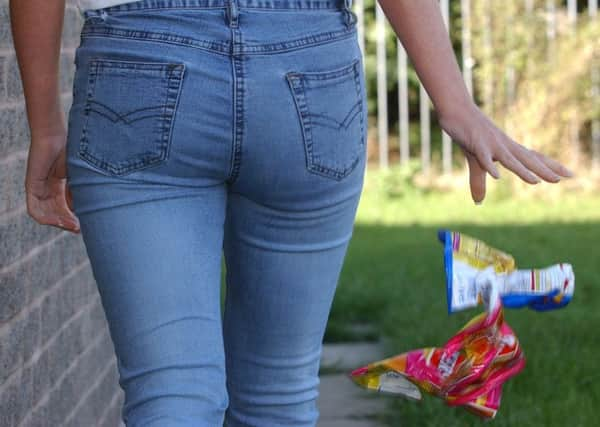Comment: Agricultural cost of dropping litter


At the CLA, we’ve given our full support to this proposal. For some years we have been campaigning for local government to be given more powers to combat litter and fly-tipping which not only blights the countryside but can cost farmers and landowners thousands of pounds in clear-up bills.
While litter dropped on publicly owned land is cleared up by the local authority, litter dropped on private land often has to be cleared up by the owner. On average, it costs the landowner around £800 to clear up an incident of non-toxic fly-tipped waste. And there’s the potential for landowners to be prosecuted purely because they’ve not removed waste tipped on their land.
Advertisement
Hide AdAdvertisement
Hide AdLast year we welcomed new guidelines from the Sentencing Council, which said it wanted magistrates to make more use of the highest levels of fines for people caught fly-tipping. This was long overdue and a step in the right direction but it doesn’t deal with the problems faced by landowners who have rubbish dumped on their property.
As The Yorkshire Post’s Clean Up Yorkshire campaign is currently highlighting, litter is a growing problem. Government figures show the region’s local authorities spent £77.1million on street cleansing in 2013/14, compared to £68.7m in 2008/09.
Any type of rubbish, no matter how big or small, dumped on to the side of roads can easily find its way into nearby fields used for growing crops or to graze livestock. Rubbish is ending up in crops, jeopardising farmers’ contracts. A farmer in the South East recently lost a £16,000 contract because fragments of glass from a discarded bottle were found in a 1kg grain sample.
Livestock can chew and ingest rubbish found on grazing pastures, leading to the slow, agonising death of the animals. We’ve come across terribly sad incidents in other parts of the country where members with land adjacent to a road have found pieces of litter stuck in the guts of dead animals.
Advertisement
Hide AdAdvertisement
Hide AdTougher penalties for those caught dropping litter from their car windows or dumping it out of their boot are a good starting point but what we really need is for the public to realise the consequences of littering. It may seem like a victimless act, but throwing rubbish from a car window or dumping it on a verge could lead to a major problem for a farmer and the food they grow or the animals they care for.
If people changed their habits, this problem could be brought under control. In the meantime, the CLA is lobbying government to create a new ticketing scheme that would enable landowners to take fly-tipped rubbish to their local tip free of charge. Our action plan to tackle environmental crime calls for the Government to ensure local authorities can accept fly-tipped waste without charge to landowners as well as an end to the prosecution of landowners who have waste dumped on their land and have to pay to remove it.
Better public awareness and the right policy framework for local authorities to work with police on a zero-tolerance approach, is the only way that we will tackle this growing threat to our countryside.
Dorothy Fairburn is regional director of the CLA in the North.